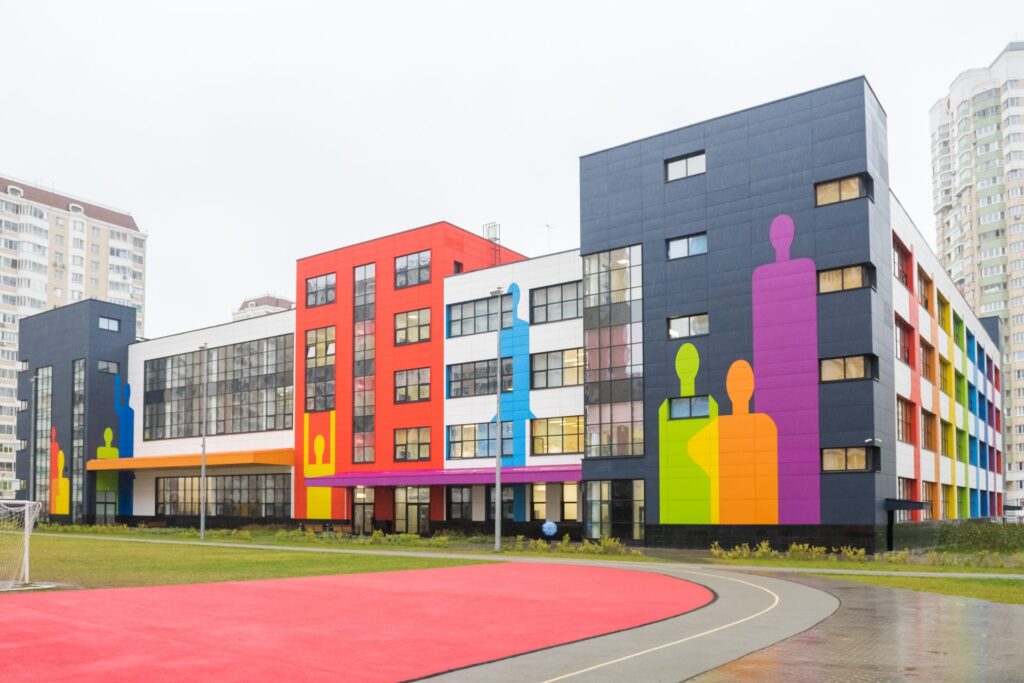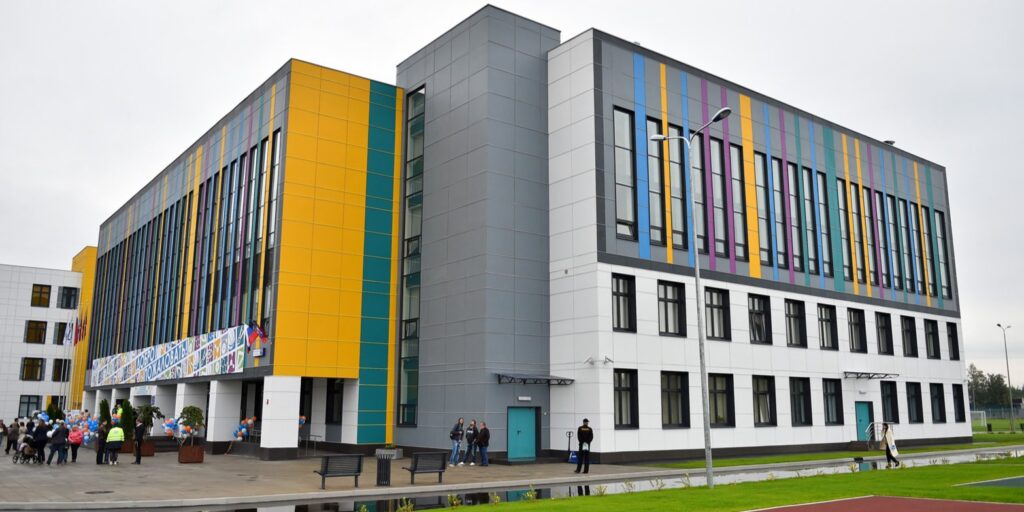
Enrolment in the first grades of school has begun. Many parents face the dilemma of giving their child up in a private or public school. Both options have their obvious pros and cons.
However, not all parents have yet decided on the choice of an appropriate educational institution. They can be understood, because if ten years ago the choice was small: the school in the backyard or across the street, today parents face a dilemma – private or public. And it is not only the amount of money that parents can and are willing to spend on the education of their child. Both conventional public and private schools have their pros and cons.
Shsat schools
Let us start with public schools, of which there is an absolute majority in our country. For parents who are not burdened with a thick wallet, the most important advantage of public schools is free education. Today, however, this “free education” is quite conditional. Firstly, recently, public schools also demand from parents to pay a certain amount to the school treasury. Secondly, in many schools there are numerous studios and clubs, for which one also has to pay (but the rates, in most cases, are quite acceptable for families with average income). The argument in favour of ordinary schools should be that they are obliged to accept all children registered nearby, without exception, even if it is a prestigious school (although it is not so simple here too, but it is a topic for a separate article). Prestigious schools are considered to be “humanitarian, mathematical or natural science schools”), they existed back in the Soviet Union, and it was always quite difficult to get there. Today there are many such schools in Moscow. As a rule, classes with a “slope” are attached to any university. For example, “All-Russian part-time multi subject school”. RAO, working at Lomonosov Moscow State University, has its own classrooms in many schools in Moscow. It’s only a pity that few people at MSU know about it. And, of course, when entering a university, the certificate that the child has graduated from this educational institution does not give anything.
Besides district general education schools, there are state boarding schools. Pupils live there for the whole working week in a special hostel, and go home only on weekends. Since most of the students in the boarding schools are children from dysfunctional families, a child from an ordinary family may not feel comfortable in such conditions.
However, we will move to private schools. At first glance, the first thing that should attract parents is an excellent level of teaching. But, as we have learned from conversations with parents, they are most often concerned about other things, namely, safety, good attitude towards children, delicious food, new textbooks, comfortable classrooms, and, strangely enough, what is greatly lacking in public schools – clean restrooms.
Of course, that is not all. Almost all parents, whose children study in private schools, say that the child becomes more liberated and relaxed. He knows that he will always be able to prove himself right: the door to the principal’s office is open to him, the student will be received, he will be talked to, solve all problems, and often – in his favor. In a public school it is impossible to enter the principal’s office with a claim, who sometimes does not even know the name of the student. And, unfortunately, in public school, a child will almost always be wrong just because he is a pupil, and his offender – the teacher. In private schools, an average of 10-12 people are enrolled in classes, while classes in many ordinary secondary schools are overcrowded.
And yet, not everyone in private schools is as good as many people think. Advertising promises fabulous education in fabulous conditions, but in reality you do not get half. Repeatedly had to hear from parents whose children graduated from private schools, that the chances of independently (and not on the commercial department) to enter the institute after graduation from such schools is not so great. Still, in a public school it is difficult to get an assessment “for free”, and in a private school you “draw” any – you only have to ask (and pay). In addition, some private schools are practicing a new approach to knowledge. For example, in the “Noble Maiden’s School” teaching block: one subject is studied for a month and a half, then get an annual grade and move on to the next. Many parents resent this approach: “My daughter by the end of the year will not remember anything of algebra or geometry! “Why would she do that? – asks the teacher. – Do you want to raise your girl Sofia Kovalevskaya?”
In general, before giving a child to a private school, it would be useful to ask if the school has a license and accreditation. If there is no accreditation, your child will have to take the final exams for the certificate in a regular comprehensive school with which the private school has an agreement. This is how students at the Natalia Nesterova School take their exams. Also shsat shoals how to choose.
To fully clarify the picture of private and public education, we talked to Natalia Borisovna Tralkova, an expert of the Moscow Department of Education.
“Tro”: What should parents pay attention to when choosing a school?

Natalia Tralkova: First of all, it is important to remember why we give our children to school. So the main factor when choosing a school is the curriculum, which, in turn, should not be overcrowded. There should be no more than three options. There are special educational institutions for gifted children of different ages. The second, no less important factor is the atmosphere in the school. The third factor is teachers. It is desirable to get to know the first teachers in your child’s life personally. The last factor is the pupils themselves. Find out the strategy for selecting students for this school. It will not be superfluous if a parent asks the teaching unit when and for what the last time a pupil was kicked out. Find out how often the school takes part in city Olympiads, what awards it has, and whether it participates in sports competitions. Answering these questions will help you build your own profile for each school, and eventually choose the one that really suits your child.
“Y”: The main question that parents are concerned about is: Which school should be preferred, private or public?
N.T.: We need to remember that we have no absolutely free education in our country for a long time. Each school takes money for security, and there is nothing wrong with that, on the contrary, it is a big plus. Parents are also charged for the teaching of subjects beyond the mandatory program, for so-called paid educational services. In addition, in many public schools in Moscow parents have to provide “sponsorship”: they have to buy the necessary equipment, furniture, and pay for the repair of classes.
And the question, which school is better, cannot be unambiguously answered. Naturally, not every parent, even if they want to, can allow for private education for their child. The average cost of education in a private school in Moscow – about $ 600 per month. According to statistics, only 5% of Russians are willing to spend such money on the education of their children. Nevertheless, there are about 225 private schools in the capital, where 18 thousand children study. People with great opportunities are looking for either a very expensive education or something that parents’ children from their circle have tried. It is no secret that the most prestigious private schools in the country are located on Rublevo-Uspenskoye Highway. In addition to the fact that your child will have to enter such a school, parents will have to pay a down payment, which ranges from 3 to 10 thousand dollars, and then pay monthly from $700 to $2000. Obviously, the number of consumers is narrowing even further here. As a rule, in many of these educational institutions the number of students is only 100 on average. The programs of all private schools are almost the same: 90% of them are linguistically fashionable at all times.
“Y”: What should be considered for parents who want their child to attend a private school?
N.T.: First of all, you have to look at the state accreditation, which is available only from good schools and only after several years of work. It’s not easy to get it: you have to prove to an authoritative commission that the curricula comply with the state educational standards, and the premises – with sanitary and hygienic norms. Besides, the qualification of teachers also plays an important role. Only the presence of state accreditation, which is issued for 5 years, gives the school the right to issue state certificates. Shsat handbook for students.
In general, the choice of school is a responsible step, and it should be taken very carefully. If you are not mistaken in your choice, then all the money invested in the education of your child will be more than paid off.